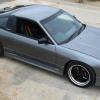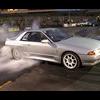More Boost More Power
Announcements
-
Similar Content
-
Latest Posts
-
I'll be getting a timing light this weekend and also checking for spark. I was trying to avoid having to take all the Y piping things from the upper intake off again but I guess I have no choice lol
-
Because the drive dog for the steeering angle sensor is present on wheels that came in HICAS cars and not present on wheels that came on non-HICAS cars. Not that I would let that bother me, because HICAS is trash and any excuse to get rid of it is a good excuse.
-
My plan is to replace both Shift Solenoids A and B, and good idea on the Torque Convertor Solenoid as well.
-
I mean, I am always taking donations for a newer model!! If you'd like to sponsor me. I would gladly get something else!! LOL
-
Interesting. Great info. thank you. Give a few days to get that name plate. I have a busy life most weeks. I will be in touch.
-





Recommended Posts
Create an account or sign in to comment
You need to be a member in order to leave a comment
Create an account
Sign up for a new account in our community. It's easy!
Register a new accountSign in
Already have an account? Sign in here.
Sign In Now